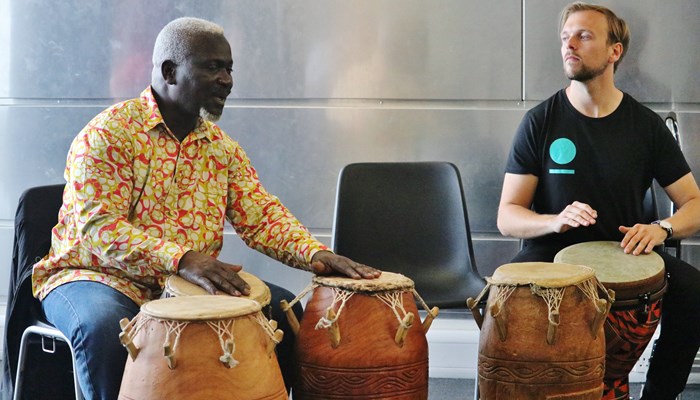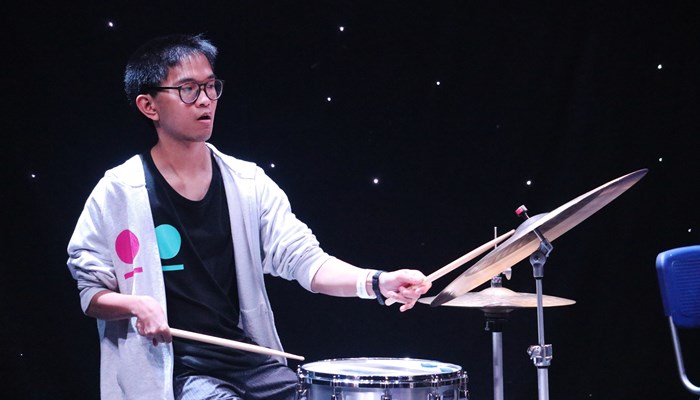"We aim to create improved pathways, future opportunities and supportive environments in which people can flourish."
What is your organisation working to achieve?
Paragon is working to achieve an equal playing field in the arts, where people from all walks of life and with a wide range of additional support needs are valued as positive contributors to a diverse arts world.
Where are you focusing your support right now?
Currently Paragon’s support is focused on reducing social isolation and promoting mental health and wellbeing through the arts. Many of the people who attend Paragon’s programmes are vulnerable to Covid19 and are therefore in the shielding population. Our efforts over the past six months have been focused on maintaining a regular programme of online music and dance workshops, providing an important social and creative outlet during a very challenging time.
How do poverty and trauma figure in your work?
People with additional support needs face many barriers to pursuing their aspirations, accessing training and education opportunities and gaining paid employment. Paragon creates pathways for people to pursue a fulfilling life in the arts, supporting people on a one to one basis to identify and work towards their creative ambitions. We work with many people who have experienced severe discrimination, inequity and trauma and create an environment that is free from discrimination, where people can explore and express their emotions and experiences through creativity. We have seen the transformative effect music and the arts has on people’s self-confidence, motivation and overall wellbeing. Paragon’s work on poverty and trauma is preventative in that we aim to create improved pathways, future opportunities and supportive environments in which people can flourish.

How can funders support your work?
Many people who engage with Paragon are disenfranchised and of low income and don’t have the equipment, technology or resources to take part online. Funders can support our work by providing resources and helping Paragon to employ personnel to support people to take part. Many people involved in Paragon’s programmes have had their statutory support reduced during the Covid19 pandemic, meaning they do not have sufficient care support hours to engage with the programmes they would like to. Funders can also support by highlighting the work Paragon is doing through various channels.
What changes would you like to see in your area of focus during the next five years?
A more inclusive approach to music and dance in secondary and higher education that embraces difference, and gives opportunities to those underrepresented in the arts to gain entry to the arts world. An arts sector which is more diverse and enriched by the experiences and creative contributions of people from different backgrounds. More people with additional support needs in key roles in the arts world and in the public eye, including those from the D/deaf community, disabled people, and neurodiverse people. More influence from people in these communities leading to less ableist thinking in the arts world.
What long-term system changes would best address the issues?
More support for young people with additional support needs at transitions age to plan their next steps and understand what opportunities are available to them in the arts. More inclusive application procedures for further and higher education, so that those with physical disabilities and those who have been excluded from the arts at school can demonstrate their abilities in different ways. A Universal Design approach to further and higher education courses with staff trained in inclusive practice.

How Paragon's work fits with our 2020-2030 strategy
Funding Officer
Watch our video with Paragon recorded in 2019

